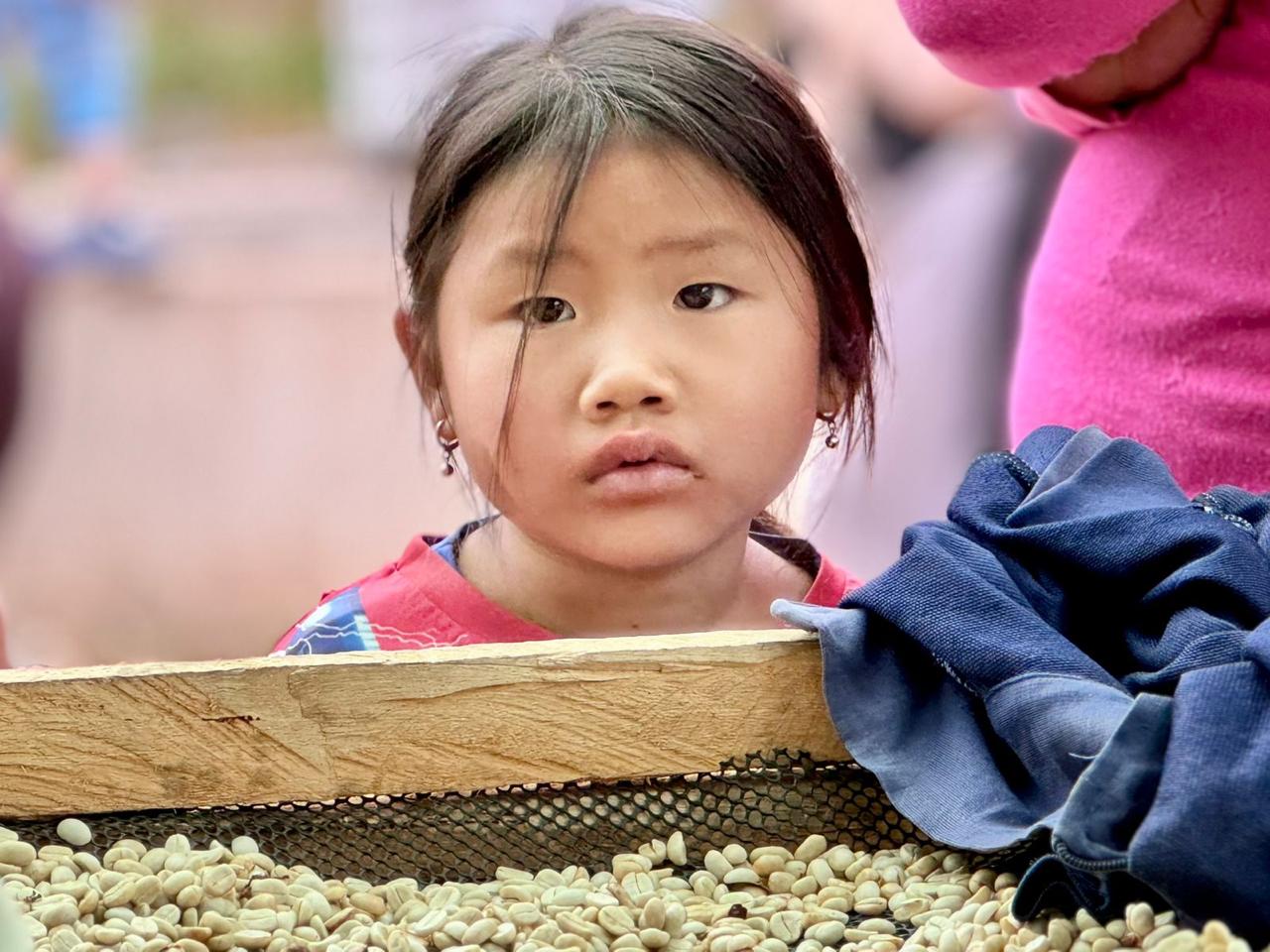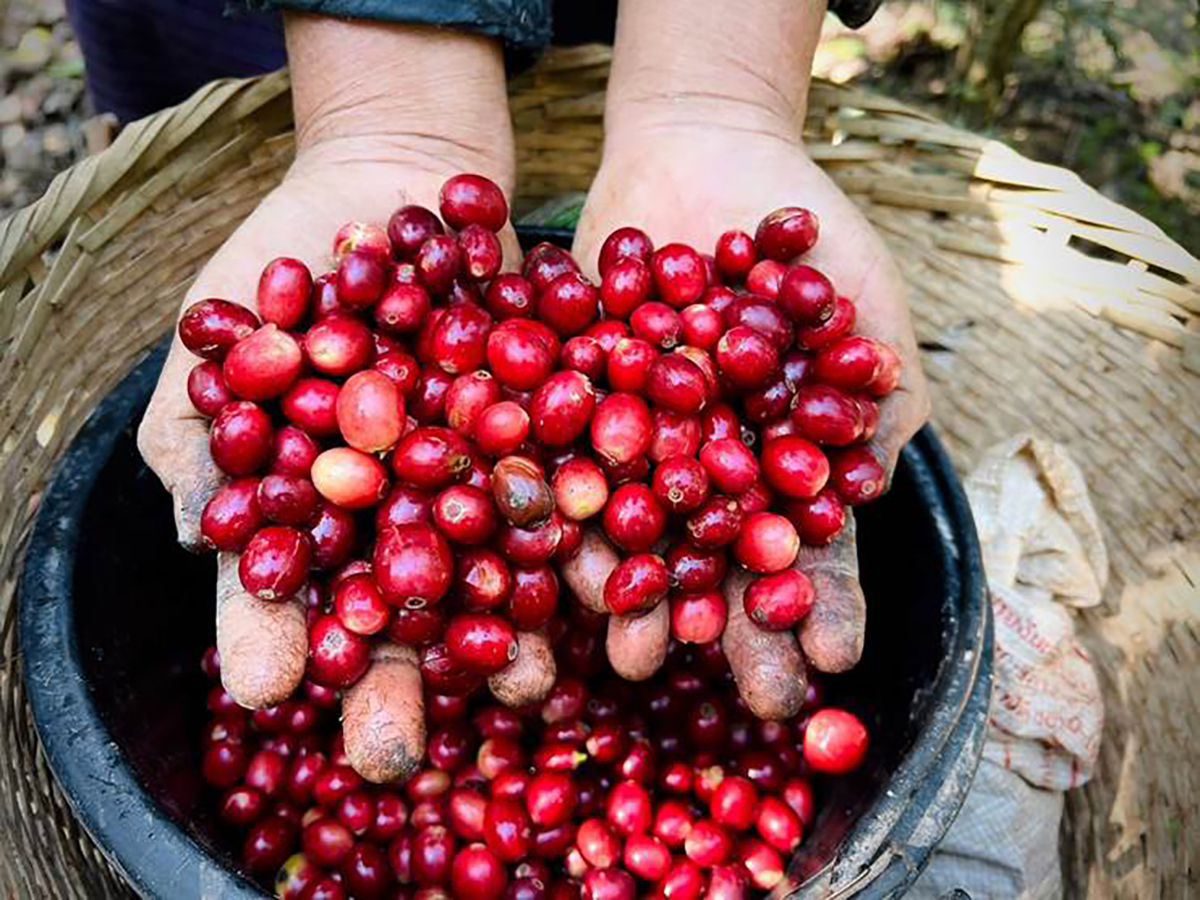
Houaphanh (Lao PDR), 25 June 2024 - “Latte hon, please!”
Those who know me will know how much I love coffee. I love everything about it – the smell, the anticipation of a good cuppa, the discovery of charming cafes, the conversations that flow. Perhaps no one was happier than me when the coffee cooperative Vanmai opened a cart in UN House, significantly improving the mood of weekday mornings…and afternoons!
So, when I got the opportunity to take a field trip to Houaphanh, I made sure to arrange a visit to the Vanmai cooperative, an alternative development project supported by the UN Office on Drugs and Crime (UNODC). It was the first visit for the UN Resident Coordinator Bakhodir Burkhanov together with Director General Daovy Vongxay of the Ministry of Foreign Affairs to the province.
What sets Vanmai — meaning New Day in Lao — apart from other coffee cooperatives is that the farmers had previously grown opium or live in areas at risk of such illicit cultivation. The transition from opium to coffee is a story of perseverance and passion. It took eight years, numerous trainings and persistent advocacy to convince 800 households to convert to growing coffee. Like opium, growing coffee is hard work. Unlike opium, thanks in part to UNODC, coffee is proving to be more lucrative and more sustainable for farmers and the wider community.
While Lao PDR is not traditionally a coffee-drinking culture, anecdotal evidence suggests that domestic coffee consumption is increasing. In 2023, Vanmai won a national award for the best washed arabica coffee in Laos. Vanmai is also sold internationally — a well-known French coffee company is a long-term buyer of Vanmai, bringing Lao coffee and its story into homes in France and abroad.
Our field visit in Houaphanh started with meeting the UNODC project team at the office in the main city. We did an aroma test to identify the aroma notes of the coffee – that coffee lovers claim are more than wine! From there, we drove to the nearest plantation, which was 45 minutes from the main road and navigable only in a 4X4.

We were shown around the village and coffee plantation by an agriculture extension worker — a young woman who teaches farming techniques. In the village, we visited the nursery, where each plant is looked after diligently for eight months before it is transferred to the plantation. At the plantation, we plucked what looked like red cherries, and inside discovered the coffee beans. I was struck by the sustainability of the process — the red covering is separated and is used to make fertilizer or cascara tea. The coffee plantations require tall shade trees that bind the soil together, thereby preventing erosion and promoting reforestation. New plants can grow on the same soil, unlike crops grown here before, which required shifting cultivation.
Next, we went to the village to see the coffee processing. There, the red cherries were washed and separated by machine. The coffee beans were then put into a large bucket of water to ferment for 24 hours. Next, the beans would be laid out to dry and then sorted.
In the beginning it takes some three years for a coffee tree to grow, to go from seed to coffee bean ready to roast. “At first, we didn’t believe the UNODC team when they explained why we should grow coffee. Now, we are envied by those who did not join our cooperative,” said one farmer, smiling as he accepted the token of appreciation that we gave him.
Back in UN House, I showed the Vanmai coffee barista photos from our trip. He is from Houaphanh. Now, in addition to my perfect latte hon from the cart, I also get a warm smile, which makes the start of my day even better.
This blog is written by Shairi Mathur, Head of the UN Resident Coordinator's Office, Lao PDR as part of an official mission led by the UN Resident Coordinator to visit the UNODC project.The blog post was originally published in UN in Lao PDR.